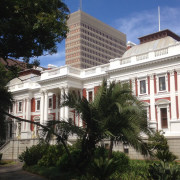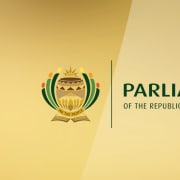|
Getting your Trinity Audio player ready...
|
By Moepeng Valencia Talane – CW Voices
Five years after he promised South Africans lifestyle audits for members of his cabinet as part of his administration’s anti-corruption strategy, President Cyril Ramaphosa is yet to implement this major undertaking. The latest update on the matter from his office, given by Minister Khumbudzo Ntshavheni in March, is that the president is expected to receive a report reviewed by the task team responsible for developing the framework, and decide how the audits would be incorporated into the performance agreement of his ministers.
The time lapse may well be attributed to the complexity of the legal framework that goes into this sort of process – a challenge experienced by other countries that sought to implement lifestyle audits – but it is one more let-down that chips away at the public confidence Ramaphosa’s government desperately needs.
At the beginning of his presidency, Ramaphosa announced lifestyle audits for Cabinet members, to reassure the public of his administration’s bold stance against corruption. A good move, of course, as over time the Zondo commission would reveal the extent of undue executive interference in the running of public institutions and state-owned entities for personal gain by some members of the executive. But to date, only officials in provincial and national government are being subjected to lifestyle audits, and not said ministers. The guidelines for the audits were approved in April 2021, following some extensive collaborative work among several departments, the South African Revenue Service, the police service, the Public Service Commission, and the Financial Intelligence Centre, among others. According to the government website, several cases that were picked up in the first year of implementation looked into corruption to the value of R244-million, and a number of officials were arrested.
Ntshavheni explained in a reply to a parliamentary question on the matter that the hold-up on cabinet lifestyle audits is in finalising the policies for the financial disclosures by ministers. She further suggested that the practice would also be extended to members of Parliament as some are also ministers.
Deliberate delays, or issues of complexity?
The EFF accused Ramaphosa of delaying the implementation, which is a fair observation, given delays by his office in implementing other initiatives. But research into the practice shows that there are no shortcuts to a lifestyle audit framework that ensures compliance, monitoring, and eventually punishment where necessary.
So perhaps in Ramaphosa’s case, the announcement was another case of jumping the gun in the name of politicking.
The debate on the practicality and impact of lifestyle audits, even internationally, reveals that it’s a nice-to-have tool for any government wanting to enforce transparency and good faith by its leaders, but a difficult one nonetheless to implement. The many facets of such a practice that have to be carefully considered make it near impossible for any government to use it as a remedy for corruption. From the legal implications involved, to the technology (digitisation of records) required to facilitate consistent monitoring, to the development of appropriate sanctions, implementinf a lifestyle audit programme is no small feat.
Easier said than done
In Transparency International’s Knowledge Hub, a 2021 bulletin, giving an overview of the use of lifestyle audits as anti-corruption measures, acknowledges the difficulty in getting them into place.
Some of the observations therein include:
- Limitations in the resource-intensive nature of lifestyle audits make them difficult to implement and maintain as a tool across the public sector.
- Although lifestyle audits have been promoted as a panacea for corruption in several African countries, merely adopting legislation that allows law enforcement authorities to conduct these audits will not itself lead to lower rates of corruption.
- There are human rights-related concerns about how lifestyle audits may threaten privacy rights as well as the presumption of innocence, which is a fundamental component of the right to a fair trial.
The bulletin further notes how fragmented laws in different countries that have gone the route of lifestyle audits can make it difficult to ascertain who should be subjected to them, who has the authority to regulate the environment in which they are implemented and monitored, and what should the sanctions look like.
The bulletin also puts into context the constitutionality of the practice.
There have been concerns raised that more senior public servants, like cabinet ministers, have the resources to abuse a system allowing for lifestyle audits by simply using facilities available to them in other countries to move their assets. This point was argued by Uganda’s President Yoweri Museveni, who was reported in December 2022 by local media to have warned authorities developing a lifestyle audit framework in that country’s government – announced by his own government in 2021 – that the implications may be all but positive. His argument is that once corrupt officials are cornered by such measures, they may take drastic steps like moving their assets abroad, to escape accountability. Ugandan authorities too have met with challenges in developing a framework that works for their country.
It will be interesting to see how Ramaphosa frames the issue of ministerial lifestyle audits in his campaigning ahead of next year’s elections. What is clear is that the anti-corruption ticket on which he based his 2017 presidential campaign, did not consider the limitations of some of its promises, including the use of lifestyle audits to combat corruption.
He had this to say to Parliament in 2018: “We have no doubt that the lifestyle audits will contribute significantly in defeating corruption and the abuse of public resources for private gain.”
We as South Africans care about eradicating corruption in our country, but we also deserve transparency on which measures are deliverable. Civil society organisations exist for this very reason, to assist and advise government on best practices that advance its public agenda.









Leave a Reply